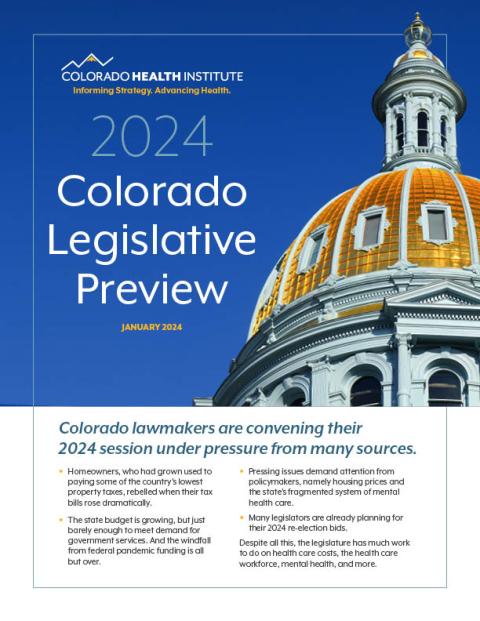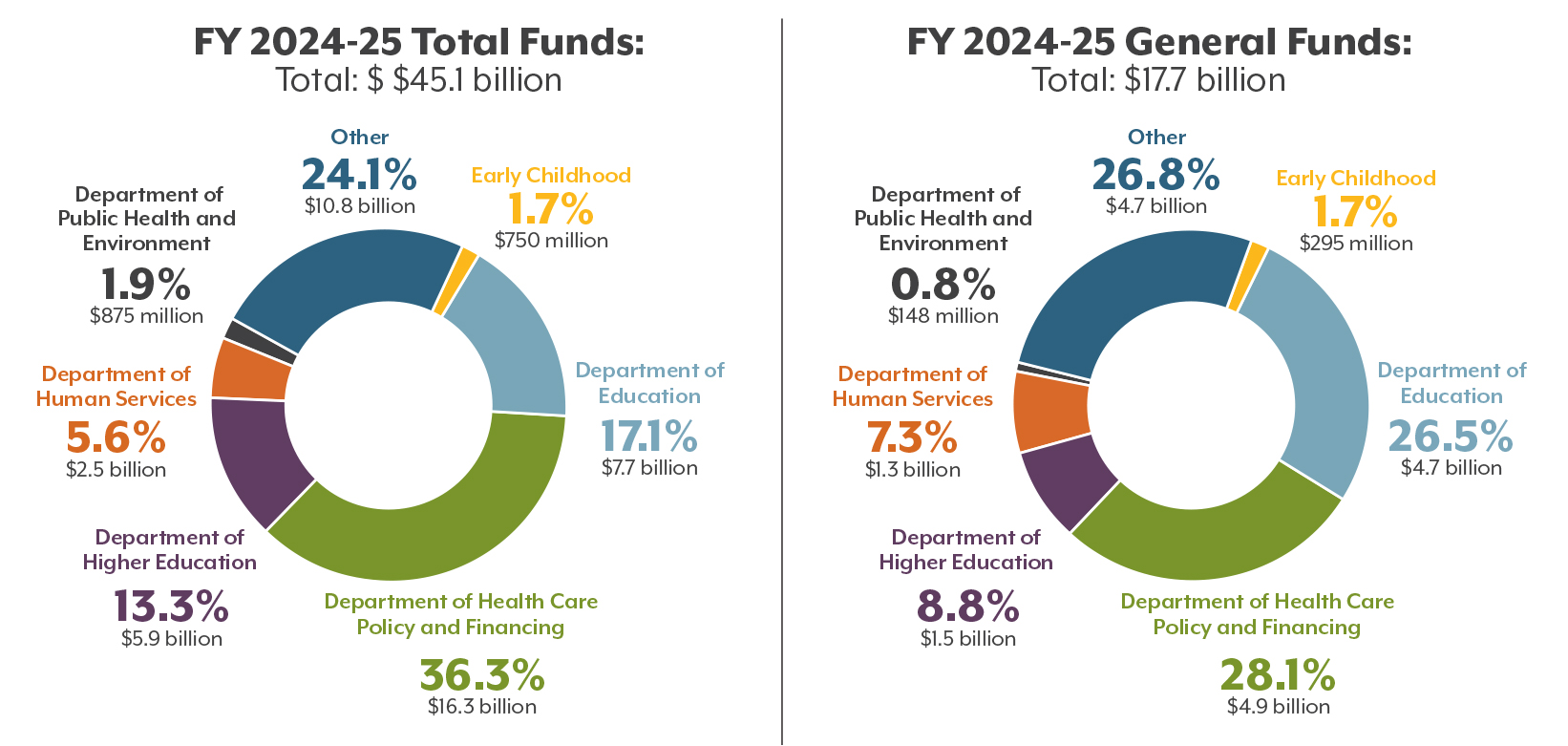Perpetual Concerns
Several long-running topics will be back on the agenda in 2024, including expanding the health care workforce, cutting health care costs, improving behavioral health treatment options, and dealing with climate change.
Health Care Workforce
The COVID-19 pandemic underscored the impact of shortages in the health care workforce. Over the past few years, legislators have discussed ways to encourage more young people to become health care workers, increase reimbursement rates for providers, and build cultural sensitivity among the health care workforce.
This year, legislators will likely consider interstate compacts to allow more types of providers with out-of-state licenses to practice in Colorado. They may also discuss ways to ensure greater safety for health care workers, who have sometimes faced intimidation or worse while doing their jobs.
Legislators also may consider bills aimed at increasing the reimbursement rates for certain types of providers and think about other ways to incentivize more people to become providers. One interim committee has already moved forward a bill about loan repayment assistance for school mental health professionals.
Health Care Costs
Polis has made health care costs a top agenda item since he became governor. Similarly, many legislators made health care costs a priority, particularly during the election cycle.
This year, this conversation will address discounted hospital care for people who cannot afford to pay their bills. Currently, all hospitals are required to offer a discounted care program, and some hospitals also participate in the voluntary Colorado Indigent Care Program. Legislators could wind down the CICP program and focus on enhancing discounted hospital care programs.
At the same time, federal law is requiring the state to disenroll Medicaid members who make too much money to be eligible for the program. The state has estimated that over 300,000 Coloradans may be dropped from Medicaid now that the federal law that kept people in the Medicaid program during the pandemic has expired. Legislators and state agencies want to find solutions for Coloradans who are disenrolled. They will likely think about ways to help Coloradans enroll in insurance on the individual market. Progressive legislators may push for a feasibility study on a single-payer health care system in Colorado.
Environmental Adaptation and Mitigation
As wildfires increase and water becomes scarcer in Colorado, legislators have spent several years looking for ways to deal with the effects of climate change. They have also been working to cut emissions, particularly because the Front Range is still violating federal ozone caps. In summer and fall 2023, legislators convened three separate committees focused on wildfire adaptation, water shortages, and ozone standards.
Legislators plan to introduce bills on a broad range of climate adaptation topics, including grants to respond to wildfires, a study on a charcoal-like substance called biochar, bans on new ornamental grasses that use lots of water, and limits on future emissions.
Behavioral Health
Behavioral health is another perpetual concern for legislators. In 2022, they revamped the behavioral health system by creating the Behavioral Health Administration, which aims to be the lead agency for coordinating behavioral health services across all state agencies. In 2024, work on the issue will continue, including conversations on suicide prevention, criminal justice involvement, youth mental health, and gender-affirming care.
Colorado’s suicide rate hit a peak in 2021. Several legislators plan to introduce bills focused on preventing suicide. Among them is a measure that would criminalize encouraging suicide or providing advice on dying by suicide. Another possible bill would ban the sale of pure sodium nitrate, a drug that is increasingly used in suicides.
Across the country, over one in three people in prisons and jails have a mental illness and over half have a substance use disorder. Legislators are looking for ways to reduce unnecessary criminal justice involvement for those with behavioral health challenges, including by forbidding involuntary mental health holds in jails. Legislators are also likely to discuss alternatives to incarceration for those with severe mental illnesses.
Youth Mental Health
Youth mental health has become a crisis in recent years. According to the 2023 Colorado Health Access Survey, one in five teenagers reported poor mental health in the past year.
Young people with mental health challenges often do not have treatment options. Many teenagers and families have shared stories of waiting indefinitely in emergency departments during a mental health crisis, because they had nowhere else to get care., Legislators remain focused on ways to improve treatment availability, particularly in crisis situations. The Child Welfare System Interim Study Committee referred a bill to the legislature that would overhaul the entire system of care for youth behavioral health. This bill could require a $1.1 billion appropriation beginning in 2026 to pay for all behavioral health services covered under this system of care. The panel also approved a narrower bill to expand programs and the system of care for youth with serious behavioral health needs.
A separate interim committee referred a bill that would expand crisis resolution services for youth experiencing high-acuity behavioral health crises.
Legislators also are likely to discuss ways to prevent mental health problems. One major concern is the impact of social media on youth mental health.
Gender-Affirming Care
Transgender rights and health — particularly access to gender-affirming care — have become highly partisan health topics nationally.
The Colorado Youth Advisory Council, which votes on bills that teenage members of the council have helped to write, has already moved forward two bills aimed at supporting transgender youth, particularly their mental health. One requires schools to use students’ preferred names, and the other creates a study on access to gender-affirming care in Colorado.







